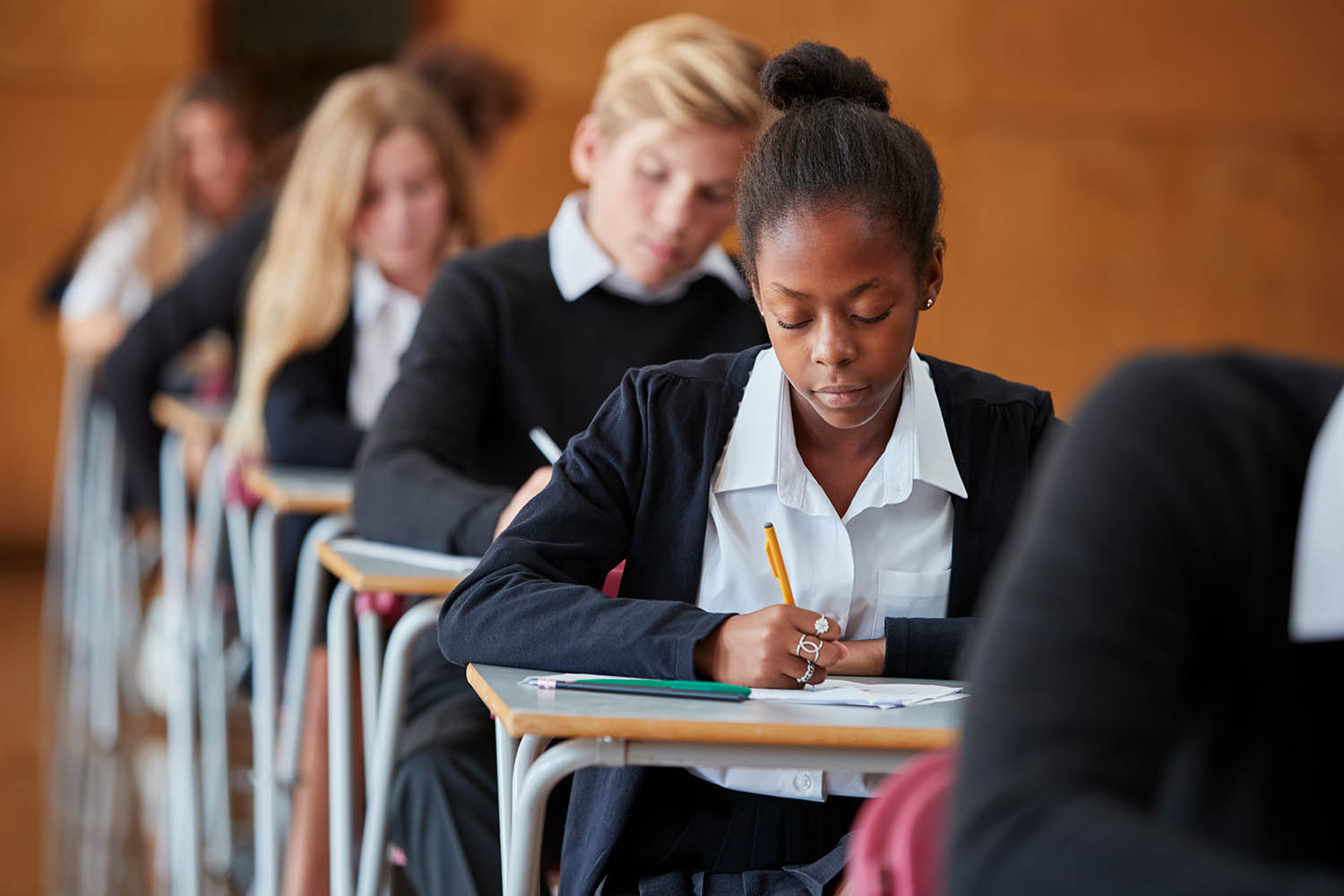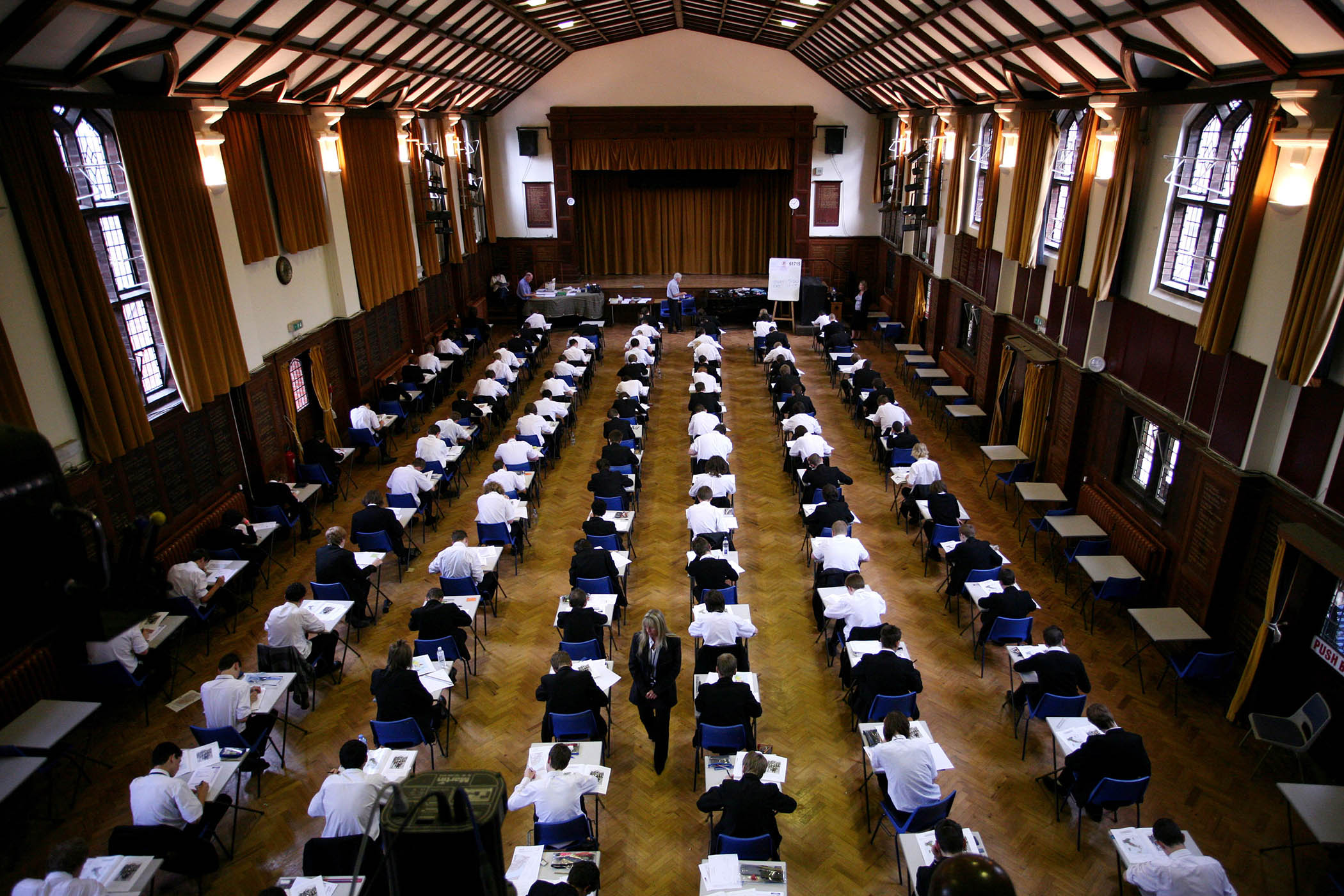The British education system has for decades suffered from an intractable problem. How is it that so many people leave it without basic qualifications?
Of the teenagers who are right now trudging through their GCSEs, a fifth are likely to fail English and maths, seen by employers and educators as a benchmark of competence for adult life. Of those, many will resit without success, becoming increasingly disillusioned.
Last year, just 20.9% of resitters achieved a pass in English; for maths, the figure was 17.4%. In practical terms, this means that many of those 16-year-olds are unable to compare the costs of groceries and services, spot fake news or media bias, or understand a medical prescription.
They will be shut out of large parts of the economy, often condemned to low wages and insecure work. After 12 years of schooling, this is the fate of hundreds of thousands of pupils.
It is strange that such a rich nation turns out so many teenagers with fundamental life skills missing – international comparisons show that, at least historically, we are an outlier. In 2016, a review by the Organisation for Economic Co-operation and Development called British teens the “most illiterate in the developed world”.
Who do exams work for, and who do they betray? We are an overexamined nation. Children run a gauntlet of standardised tests, starting at reception and repeating in year 1, year 2, year 4 and year 6.
The stakes ramp up to breaking point at age 16 through to 18, with GCSEs, AS-levels and A-levels. Entrance exams bar the gates of many private schools and some university courses.
We are unusual, particularly when it comes to GCSEs. British 16-year-olds spend more time in exam halls than almost anyone in the world. Some countries, including Belgium, Finland, Hong Kong, Lithuania and the Netherlands, do not even use external assessment at this stage; in many other countries, the test is not as high-stakes. In the UK, a single three-hour stretch can dictate the rest of your life.
Exams have their advantages. They are still the most reliable way we have of comparing students with each other, as well as of holding schools to account. If teachers are put in charge of assessing their pupils’ work instead, biases creep in. During Covid, many private schools gave themselves inflated marks, and in studies teachers have been found giving lower grades to minority-ethnic and overweight students. Too many generous teachers create a different kind of problem: when everyone wins, the best find it hard to shine. As teachers are under pressure to show improvement, that’s a constant danger.
Newsletters
Choose the newsletters you want to receive
View more
For information about how The Observer protects your data, read our Privacy Policy
It is the brightest who benefit most from the UK’s standardised exam system, which is in practice designed to help universities select. Clever teenagers from tough backgrounds have a greater chance of reaching academic heights. Around 68% of Oxford admissions went to state school pupils last year – which still falls far short of the representative 93% for England. But Harvard recruits a greater number of students from the richest 1% than it does from the poorest 60%.
Exams may also help chivvy good work out of students. The best-performing countries in the Programme for International Student Assessment (Pisa) tests are all highly examined – Singapore, Japan, Korea – and we are among them; the UK is ranked 14 out of 81. Revision makes learning stick.
Assessment based on coursework, on the other hand, could lead pupils to spend ages tinkering with a few projects rather than getting on with learning.
But exams are also a snapshot, and some otherwise promising children won’t be good at them. They are stressful, too. In one international comparison by Pisa, UK 15-year-olds had the lowest life satisfaction in Europe; in another British pupils were among the most anxious in the world. Calming children down is difficult when their futures depend on the results.
If a child falls behind in preschool, that can put them on a path to adult illiteracy
If a child falls behind in preschool, that can put them on a path to adult illiteracy
And if our exam system is good for social mobility in one way, it is bad in another. Disadvantaged children get left behind. A recent study found that just 41.4% of pupils eligible for free school meals passed their English and maths GCSEs in 2018/2019, compared with 68.4% of other pupils. Boys were slightly overrepresented, too. Once you miss these grades, even by a few marks, failure can be locked in.
The link between attaining “the basics” and prospering later seems to be particularly strong in England. For some children to rise to the top, must others fail?
This problem has plagued teachers, exam boards and education departments. Since 2014 it has been government policy that “all” children should leave school with at least a grade 4 (previously a C) in English and maths. Ruthless grade transparency incentivises schools to do the best for their pupils; the regulator runs a benchmark monitoring if literacy and numeracy have improved from year to year. But these efforts have not helped.
In the decade preceding the Covid pandemic, when teacher assessments screwed with the data, the proportions failing these subjects were unchanged. Radical ideas such as getting rid of GCSEs, making them easier or lowering the stakes would mean a trade-off: universities would have to get less selective. In France, that has led to high dropout and failure rates.
An alternative approach might be to split English and maths GCSEs into two types of test – one to examine basic numeracy and literary skills, and the other for pupils able to pursue more academic study. But studies show the real solution might be to target children much earlier in life. If a child starts to fall behind in preschool, that puts them on a path to adult illiteracy from which many do not escape. The UK ranks 25th out of 34 OECD countries when it comes to investment in early childhood, and tries to make up for it down the track. But by the time we are tinkering with GCSEs, it is more than a decade too late.
Photograph by Getty Images



